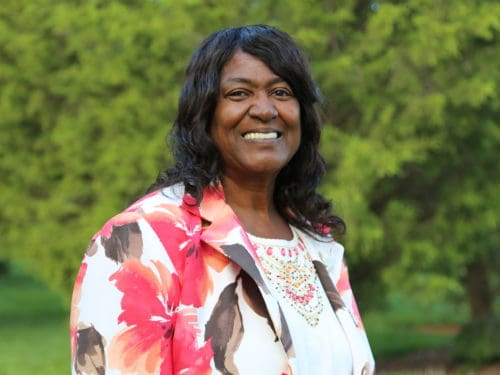The doctrine of the Trinity is the most difficult concept my little mind has ever had to grapple with. It’s hard enough to try to conceive of a God who has no beginning and no end—especially no beginning! But it’s three hundredfold more challenging to try to envision three separate Beings—each one very God of very God, God in every sense, coequal, existing side by side throughout eternity—there being no time in the past when they did not exist as such.
We let our minds stretch and stretch until they’re ready to snap, but succeed only in discovering our intellectual impotence in the face of this inscrutable mystery.
And at the very heart of it is the mystery of “the Third Person” (to use a common expression for the Holy Spirit in Christian theology). Professor Stanley Hopper of Drew University years ago said somewhere that “the doctrine of the Holy Spirit is at once the most central and the most neglected doctrine of the Christian faith.” In this article, however, I focus on the Spirit not so much as a doctrine, but, rather, as a “Person.”
As He neared the end of His life on earth, Jesus said: “‘I will pray the Father, and He will give you another Helper’” (John 14:16).
The original language of this text contains a subtle nuance not evident in the English translation, centered around the word “another.” At least two distinct words were available to the Greek writer/speaker, depending on the point they sought to make. If they wanted, for example, to distinguish an elephant from a cheetah, they’d use the word heteros in referring to “another animal.” But if the other creature was also an elephant, they’d use the word allos, meaning another animal of the same kind.
Jesus probably spoke Aramaic, but in interpreting His meaning, John used the Greek word allos. Which means that what Jesus was promising here was to send us Someone essentially just like Himself. Not a force, but a Person—a Person who hears our woes, feels our pain, sympathizes with our griefs, supports us in our struggles, and empowers us for daily living and the task before us.
And this mighty Third Person has been promised to us as a gift for the asking.
Take, for example, the interesting parallel passages of Matthew 7:7-11 and Luke 11:9-13. In the Matthew passage Jesus says that God is more willing than our earthly parents to give us the “good things” we ask for. But in the parallel version in Luke, we learn that Jesus had in mind something infinitely more important than mere “things.” In Luke’s rendering Jesus says: “‘How much more will your heavenly Father give the Holy Spirit to those who ask Him!’” (verse 13).
Trying to resolve the apparent discrepancy one day (with one passage saying “things,” the other “the Holy Spirit”), I came upon a statement by Ellen G. White that seemed to bring it all together for me. Referring to the Holy Spirit, she says: “The power of God awaits [our] demand and reception. This promised blessing, claimed by faith, brings all other blessings in its train” (The Desire of Ages, p. 672).
This means to me that though it’s right and proper to do so, I need not present a checklist to the Lord. I need not ask for victory over this, victory over that, and victory over a hundred other problems. I need not bemoan my lack of faith, my lack of wisdom, my impatience, and a thousand other deficiencies I know I have. Nor do I need to present Him a catalog of a hundred and one “things” I want. Instead, all I need to do is to ask for the mighty Third Person to come and take possession of me. Then that “promised blessing, claimed by faith, brings all other blessings in its train.” It’s what I call God’s “Package Deal.”
So Why Are We Afraid?
Sometimes I think we don’t seriously agonize for this Presence in our lives because, frankly, we’re afraid of the Spirit. And we’re afraid because of what we’ve seen from some of those who loudly claim to “have the Spirit.” We think that the Spirit will lead us to do stupid things, to make fools of ourselves. But the Spirit never leads us to do things that are repugnant or stupid in the particular culture or setting in which we function. Quite the contrary, it’s the Spirit who often holds us back from doing many dumb things of which we are so prone.
Indeed, this Gift is much more practical than we sometimes realize; and in this connection one might point to Exodus 35:30-33—to what I call “the secular activity” of the Holy Spirit. For here we find the Spirit providing abilities for design and construction, of all things! It suggests that whatever our calling or occupation, we can lean on the Spirit for the enablement we need.
This is fantastic stuff, when you stop to think about it! Whether you’re a builder, a teacher, a nurse, a mechanic, a physician, a homemaker, a janitor, a student, or whatever, the presence of the Spirit increases your ability and competence.
The Spirit does not make us better just for the sake of it, however. Rather, God would have us use the Spirit’s gifts to build up His kingdom.
Have We Become Self-sufficient?
With all the technological gadgets and wonders we have today, it’s quite possible for many of us to feel no need of any help beyond ourselves. But God’s word through the ancient prophet is as true today as then: “‘Not by might nor by power, but by My Spirit’” (Zech. 4:6).
The early disciples, recognizing their inability to accomplish anything lasting on their own, prayed “with intense earnestness for a fitness to meet [the people around them]” (The Acts of the Apostles, p. 37). And what followed was Pentecost!
It’s not by accident that the great English preacher Charles H. Spurgeon was able to draw standing-room crowds in London in the middle of a weekday. In one of his prayers we find these sentiments: “Oh, God, send us the Holy Ghost; give us both breath of spiritual life and the fire of unconquerable zeal, till nations shall yield to the sway of Jesus.”
This is our greatest need as a church. And we have prophetic intimations that that need will be fulfilled before the end. “The great work of the gospel is not to close with less manifestation of the power of God than marked its opening…. By thousands of voices, all over the earth, the warning will be given. Miracles will be wrought, the sick will be healed, and signs and wonders will follow the believers” (The Great Controversy, pp. 611, 612).
Up Close and Personal
The Spirit is, as well, the ultimate solution for all our maladies and problems. In the words of our Fundamental Beliefs, No. 5, “those who respond [to the Spirit] He renews and transforms into the image of God.” Guilt, anxiety, hostility, and a host of other problems melt in the presence of the mighty Third Person. He comes with overwhelming, quickening, recuperative, transforming power, falling like an electric shock on our palsy-stricken souls, causing every nerve, every fiber of our bodies to reverberate with new vitality and power.
And all this quietly, imperceptibly. “No one sees the hand that lifts the burden, or beholds the light descend from the courts above. The blessing comes when by faith the soul surrenders itself to God. Then that power which no human eye can see creates a new being in the image of God” (The Desire of Ages, p. 173).
What a message we have—for our own benighted souls and for a confused and blighted world! The Third Person—our most desperate need.
Roy Adams is associate editor of Adventist World.
This article originally appeared in the Adventist Review in the 2008 issue.

